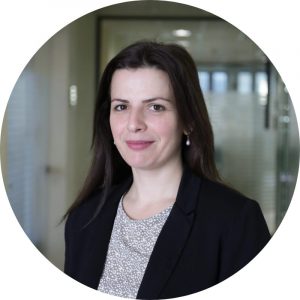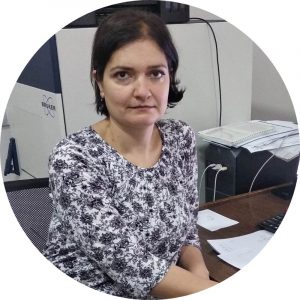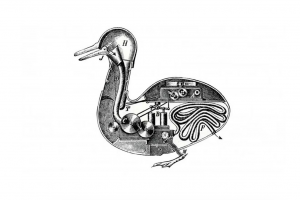The societal perception of women pursuing careers in science often oscillates between two extremes. For some, the idea of women and science seems incompatible, while for others, there is nothing extraordinary or surprising about it.
Bullying and bias are not unfamiliar to women in the field, yet their journeys demonstrate resilience. Armed with a robust “immunity” shaped by experience, they manage to withstand societal “blows” and continue to thrive in their chosen paths.

Roxana Zakharyan, a biologist and senior researcher at the Institute of Molecular Biology, as well as a lecturer, jokes about the criticisms she occasionally faces. “There’s always someone ready to scold you for spending less time at home or with your children,” she says. “They’ll say things like, ‘You’re leaving your kids to attend a conference?’”
In such moments, self-confidence and self-accomplishment become essential tools for overcoming societal pressures and breaking through barriers.
“Over the years, I’ve heard reproaches from different people, but I’ve never given them much importance. I have a clear stance and know that I’m on the right path,” says Roxana. She adds that the environment where she grew up and thrived was rooted in science, leaving her no reason to ever doubt her path.
In her pursuit of academic excellence, Roxsana also encountered mockery during her school years. “You’re not going to become the second Curie,” was a remark she often heard from peers. Despite their sarcastic attitude, the aspiring biologist remained undeterred. Her steadfast belief that continuous learning is essential for success has remained unwavering, a principle she continues to uphold in her career today.
The young scientist currently works in three different places and has three minor children, with the youngest being under two years old.

“My maternity leave lasted at most five months. And I’ve learned to get by with 4-5 hours of sleep at night. What others may say or think about me being at work more than at home doesn’t bother me much. I’m more at odds with myself, self-bully myself for not doing everything perfectly. I do my best to not have many shortcomings in daily life, but the process of self-judgment is something that happens regularly,” she adds with a smile.

The internal struggle is also frequently observed in physicist Astghik Shahkhatooni՛s case.
 Having her father as a role model, the young scientist has always prioritized science over household matters. Astghik is also a mother of three, but she has never taken more than three months off for maternity leave.
Having her father as a role model, the young scientist has always prioritized science over household matters. Astghik is also a mother of three, but she has never taken more than three months off for maternity leave.
“I’ve always been surrounded by people who work and engage in science, and I’ve never considered not working. I’m also lucky when it comes to my husband; he has always encouraged me to keep working.”
According to Astghik, the support of close ones is the most important factor in continuing down the chosen path.
Recently, Astghik was included in the list of winners for the “Women Leaders Advancement Program 2024,” with her proposed project set to receive a grant. Meanwhile, her business trips will continue.
She confesses that her eldest son understands her frequent absences from home and, in some cases, proudly declares that his mother works in science.
“Even during vacations, it’s impossible to completely disconnect from work because I lead a team, there are unfinished tasks, articles… In such moments, the only comforting thing is hearing from different people that my children speak proudly of their mom,” Astghik candidly shares.
There is a vast difference between the current Astghik, who has reached her position through constant learning and self-education in the scientific field, and the student Astghik of her university years. Back then, her environment and circumstances made her introverted and taciturn.

Based on the high scores she achieved in the entrance exams, Astghik was placed in a special group, whose other members were boys.
On one hand, the fact that her classmates came from prestigious institutions, and on the other hand, their skeptical attitude toward her, psychologically pressured her.
“Even in my first year, I failed two subjects…” she now recalls with a smile.
That difficult period of her life lasted for about two years. The turning point for both the boys discovering Astghik and Astghik discovering the boys came when one of the professors unexpectedly called her to the blackboard.

Astghik advises younger scientists to face challenges head-on, continue learning, and steadfastly pursue their goals.
Ultimately, despite the pressures of family life and raising three children, these women have not been deterred from the important and demanding mission of advancing in science.
Authored by Lilit Poghosyan
Responsible editor: Karine Darbinyan
Designed by Van Simon
The story has been prepared by Ampop Media in collaboration with the Friedrich Ebert Foundation (FES). The opinions expressed in this publication are those of the authors and are not necessarily aligned with those of the Friedrich Ebert Foundation.
ATTENTION © Content from Ampop.am and visuals bearing the Ampop Media logo may only be published on other audiovisual platforms with prior agreement from the management of Ampop Media and/or JFF.
First Published: 15/01/2025

















